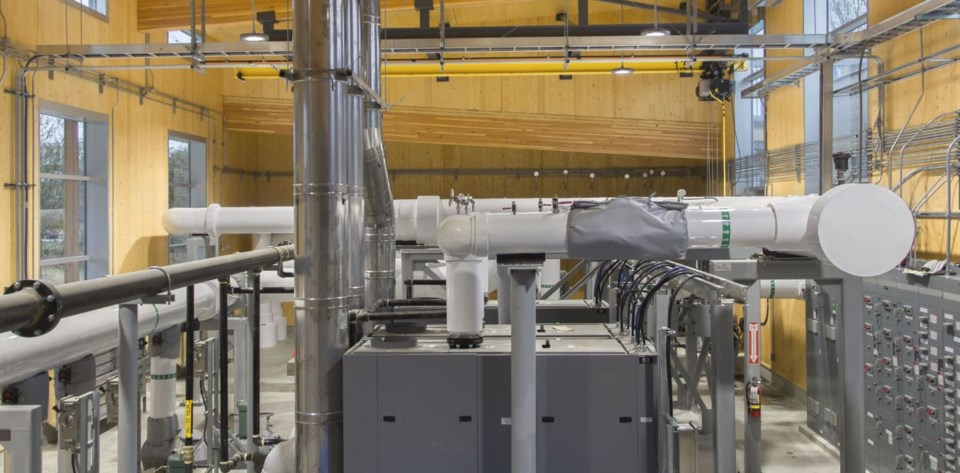Burnaby is setting up its garbage-powered District Energy Utility in Metrotown and Edmonds, and now a city councillor wants the rest of the city to get in on the alternative energy action.
Coun. Alison Gu asked staff to study ways the city can encourage developers to build district energy systems outside of the areas required to hook up to the DEU.
District energy systems are networks of connected pipes that can move thermal energy between buildings for space heating, hot water and cooling, depending on the system.
Burnaby is already home to existing district energy systems including the Burnaby Mountain District Energy Utility at SFU, Solo District in Brentwood and Burnaby Central Secondary School.
Around 38 per cent of Burnaby’s carbon emissions come from buildings, according to the city, and most of the operating emissions come from how buildings traditionally transport heat, Gu said at a council meeting June 10.
Amid concerns about BC Hydro’s ability to meet electricity demand, Gu said district energy systems are a “powerful third alternative.”
She suggested policy tools the city could use to encourage district energy systems, such as prioritizing developments that include district energy systems.
She noted while the province has recently restricted cities from allowing developers to pay cash in exchange for the city allowing them to build more homes, it has allowed cities to exchange more density (more homes) for “pre-established amenities.”
Gu asked staff to study if a district energy system could be one of those amenities.
Multiple councillors expressed support for the idea, though Coun. Richard Lee asked for staff to study whether district energy would increase costs for developers and raise the cost of housing.
Gu responded that, unlike electricity or fossil gas, the appeal of district energy is its stable rate each month, regardless of outside temperature or energy use.
“That allows people to plan, and it also comes in at a cost that is at or below the cost of traditional energy sources,” Gu said, adding builders save money by building a centralized mechanical system rather than individual heat and cooling systems like HVAC and boilers.
Gu’s motion passed unanimously. Staff will study the matter and report back to council at a later date.



